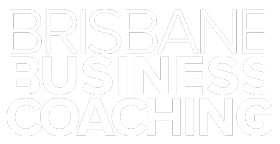If you're looking to start a company, having a guide is essential. Though there are a multitude of ways to brainstorm, a business plan is a useful and commonplace way to write it out and set concrete goals with actionable steps. Whether you're actively in the process of creating a company or you have an idea, using the BP model offers a plethora of benefits.
For those who have no idea how to get started, don't worry. Our team at Brisbane Business Coaching is here with a guide for you. Read on to discover how to do a business plan.

A BP is the launching point for your company. The document acts as a blueprint to get your needs in order before you enter the market. The guide should be a living and breathing document, meaning that it adapts to the needs of your company. The business plan can also be a beautiful point where you and your collaborators get together and parse through every aspect of the company.
Without a written document outlining the purpose of your company, it's challenging to maintain your clear vision through the process. Though you do not need a BP to have a successful venture, the guide makes your life a lot easier. The reasons to write up the document are various.

Are you wondering whether your company or venture idea could benefit from the process of writing up a guide? Maybe you've heard people around you or online advocate for the lean startup or fail fast methodologies. These methods rely on fast, and often rash, actions and decisions rather than taking time to write up guidelines.
A business plan is essential if you're serious about starting a company. Here are a few reasons why,
Unless you have a mountain of excess capital that you don't mind potentially wasting, you want to make sure that your company idea will succeed before you get started. A business plan is a detailed and thorough way of checking whether your idea will flourish in the market.
The market analysis component of crafting guidelines is the part where most people find out the fate of their concept, whether it will flop or flourish. With the research, you'll be able to focus specifically on the ideas that project the most success without wasting time, resources, and money.
Once you've crossed the threshold from analysing the idea to developing the concept and executing it, having a business plan is crucial. Both the operational and financial objectives of your endeavour come into perspective through the guide. Having the papers will give you a place to start.
You'll be able to see a concrete number for the budget, as well as which direction to take for marketing. When you craft the budget and marketing section, your target audience becomes clear. You also define what makes your company unique, how you should price products and services, and what media will best deliver your marketing messages.
Without a clear concept and concrete methods to achieve success, you'll have a harder time convincing investors to put funds into your project. Both venture capitalists and angel donors need outlines of what exactly they are investing in and how it will generate returns. A presentation of your ideas will catch interest, but most investors require a document they can analyse to feel comfortable donating money.
Know that the plan you submit will need to undergo review by every potential donor before you receive funds. Prepare to face a plethora of questions about competition analyses, projected profit, and other concerns that donors could bring to the table.
Without startup and operating capital, you lower your chances of successfully getting your company off the ground. Without a solid business plan, you will not receive debt financing from banks. You also will not receive equity financing from angel donors. These institutions want to have hard-copy, detailed guides of what they are helping to finance.
The need for funds does not stop once you've established the company and start seeing success. If you need to buy new equipment, fund new projects, or compensate for market downswings, you'll need an updated plan of action to reach out to funding providers.
Most individuals don't get past the conceptual section of creating their company. The falls happen for a variety of reasons, one being a lack of vision for the future. A business plan is a clear-cut vision of the future. The document is useful as a base for planning meetings once your company has established its footing.
Be open to editing the document whenever you or a partner/collaborator determines that new additions or modifications are necessary. Review the guide as frequently as you and your team need to update, change, or revise goals, aspirations, and partnerships in the company.
Your product or service likely has competition. The BP will lay out who the competitors are, their pricing schemes, and other essential details. All this information will help you assess the viability of the market and what you need to do to outperform the competitors.
Your financiers also will want to know the market competition to anticipate what they can expect in returns. If you have an excellent idea that no competitors have exploited, you may be onto something that could be lucrative for all—or a total black hole in investment funds. The market analysis helps you position your project and anticipate potential pitfalls.
During the startup process, you'll make a plethora of decisions that could make or break your company. Once you've become established, the decision-making doesn't stop. You'll constantly be dealing with managing crises and choosing between one path or another. With a business plan in your hand, you'll be able to go through these processes with more finesse.
Plus, the act of sitting down and thinking every aspect through will have already answered some tough questions before you even started the company creation process. A guide will help you keep your broader growth strategies in line with day-to-day decisions.

To know how to write a business plan, you'll need to know the various components that you should include. These are a couple of sections that help you break down the document and organise things,
Executive summary: The basic outline of your company, a mission statement, and why you are doing this.
Market opportunity: The current outline of whatever market you're looking to break into and how your company will fit into it.
Marketing and sales strategy: The marketing tactics and techniques you'll use to expand your brand, draw in customers, and grow.
Operations plan: The goals, procedures, and timeline of your company.
Team strategy: How you'll meet the needs of your team members and help them grow within the company. List roles and responsibilities here.
Financial projections: The investment, make money, and profit turning plans and projections.

With the outline in mind, you'll want to start brainstorming and writing the business plan. The conceptual phase takes a while, anywhere from 6 months to a year depending on the idea. Sit down with your collaborators and let the brainstorming begin. A guide to a company is a large document to write. You won't be able to complete the process in one or two sessions. All you need to get started is time, an idea, and a team of collaborators.
A mission statement is essential to make a business plan. A few questions can help you get started developing your purpose:
With a mission statement and idea in mind, you can dive into market research. Also known as the conceptual phase, you'll look into the market that you want to enter. When you research, ask yourself these questions,
• What is the state of the current market?
• Who is your audience?
• What is your competition?
If you think that joining the market is feasible after research, now it's time to differentiate yourself from the competition:
You'll want to specify financials, projections, and any future expectations that you have for the company:
The end of your business plan should include an ask for your company's needs. Detail what you need, how you'll use the help, and what you'll give investors, partners, or lenders in return.
A business plan is essential to seeing long-lasting company success. If you need help getting started, a company coach like Brisbane Business Coaching can help. Dive in to start planning immediately.
